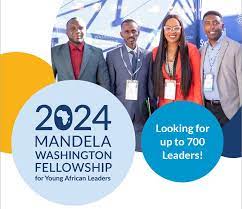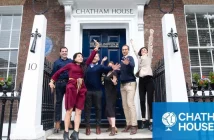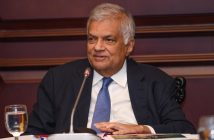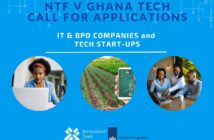|
Getting your Trinity Audio player ready...
|
The Study of the U.S. Branch, Office of Academic Exchange Programs, Bureau of Educational and Cultural Affairs (ECA) of the U.S. Department of State invites proposal submissions for one cooperative agreement to design, implement, and oversee the FY 2024 Mandela Washington Fellowship for Young African Leaders (Mandela Washington Fellowship).
Mandela Washington Fellowship has built and sustained a committed network of approximately 6,500 young African leaders across critical sectors to cement stronger ties between Sub-Saharan Africa and the United States and to prepare the African participants (Fellows) for leadership roles across the continent. The Mandela Washington Fellowship is the flagship program of the Young African Leaders Initiative (YALI), which aims to strengthen democratic institutions and good governance, spur economic growth and prosperity, and enhance peace and security across Africa and the United States.
The Leadership Institutes should be six-weeks long and should take place at an accredited U.S. college or university. The Institutes should provide groups of approximately 25 young African leaders with intensive practical academic content in one of the three tracks, as well as include robust leadership development components, networking opportunities, community service activities, site visits, and cultural enrichment.
Applicants may submit only one proposal under this competition. If multiple proposals are received from the same applicant, all submissions will be declared ineligible and receive no further consideration in the review process.
Purpose
- The Mandela Washington Fellowship is the flagship program of the YALI, which also includes the YALI Africa Regional Leadership Centers and the online YALI Network. The objective of the Fellowship is to further develop knowledge, skills, and experience of Fellows to facilitate and empower leadership, cross-cultural exchange, mutual understanding, and the formation of a sustainable, prestigious network of effective leaders in critical sectors in Sub-Saharan Africa. The Fellowship directly supports U.S. foreign policy goals for Sub-Saharan Africa, including strengthening U.S.-Africa relations. The Fellowship provides African leaders with the opportunity to further develop their skills through six-week intensive Leadership Institutes at U.S. colleges and universities, a Summit, an opportunity for approximately 100 Fellows to engage in the PDE, and other follow-on alumni programming.
Leadership Institutes
- Institutes should also include a community service component through which the Fellows can experience firsthand the key role of not-for-profit organizations and volunteerism as a core value in U.S.-based civil society.
- Institutes should highlight the importance of community service and discuss the effects of the activity in the community. Institutes should provide Fellows with an in-depth examination of specific themes outlined under the three tracks. Fellows should gain both theoretical knowledge and practical skills. Institutes should foster ECA’s mission to promote mutual understanding between citizens of other countries and citizens of the United States. Institutes should foster an inclusive environmentby incorporating speakers from diverse backgrounds and encouraging open and collaborative discussions. In addition, the programs should include robust opportunities for Fellows to meet Americans from a variety of backgrounds, to interact with U.S. peers, and to engage with appropriate student and civic groups to share their experiences and life in their home communities.
- Leadership Institute Tracks:
- Leadership in Business Institutes should provide Fellows with an overview of U.S. entrepreneurial strategies in the for-profit sector and socially-minded enterprises. This track should focus on developing Fellows’ skills in business and entrepreneurship while examining the development, history, challenges, and successes of U.S. enterprises and social enterprises, in the United States and globally, with specific relevance to the African continent. Topics may include, but are not limited to: innovation and technology, business plan development, business ethics, the intersection of business with civil society and government, diversity and inclusion in the workplace, international and regional trade, infrastructure and service delivery, strategies for sustainable business development, climate and environment-focused sustainable business practices, public-private partnerships, navigating a business in times of crisis, creative economy, and financial management, among others.
- Leadership in Civic Engagement Institutes should provide Fellows with an overview of how citizens, both as individuals and in groups, have shaped U.S. history, government, and society, including discussion of similarities and contrasts with experiences and opportunities on the African continent. This track should define civic engagement; examine its development in the United States; and build skills in topics such as active citizenship, community-based organizing, advancing inclusive communities and engaging marginalized groups in civic initiatives, intersection of civil society with economic development, business and government, grass-roots activism, strategic planning, social justice, political organizing and leadership, volunteerism, and the ways in which traditional and social media can be leveraged to advance civic causes.
- Leadership in Public Management Institutes should provide Fellows with an overview of public management, administration, and leadership, including regional economic and workforce development, public service, financial and resource management, public finance and budgeting, planning and the global knowledge economy, intersection of government with business and civil society, diversity and inclusion policies and initiatives, and domestic and foreign development policies.
Professional Development Experience (PDE)
- The award recipient will be responsible for arranging four-week PDEs in the United States for approximately 100 of the Fellows. The Fellows selected for the PDEs will have distinguished records of accomplishment in promoting innovation and positive change in their organizations, institutions, and communities. The PDEs are intended to provide Fellows with substantive professional experiences within U.S. organizations to enhance their leadership skills, expand practical skillsets, and provide opportunities for the Fellows to form mutually beneficial longterm professional relationships with their U.S. counterparts.
- For U.S. companies and organizations, the PDEs afford a unique opportunity to benefit from the insights and knowledge of dynamic young African professionals. As PDE Fellows often work in the same sector as the host U.S. organization or company, the PDEs allow the U.S. host to build global networks and expand their work to, or throughout, Africa. PDEs should be designed to offer an on-site, engaging experience for Fellows within relevant agencies and/or organizations. Each Fellow should have one placement for the full duration of the PDE (rather than shorter successive placements) in order to allow the Fellow to get an in-depth understanding of the organization. Each host organization should expect to host only one, or in exceptional cases two Fellows per PDE cohort. In very limited cases, host organizations with multiple offices may host up to three Fellows in different cities. Proposals must discuss how the award recipient, in collaboration with ECA, will recruit and select diverse U.S. host organizations.
- To ensure that each Fellow has a substantive professional experience at their PDE, PDEs should involve the commitment of at least one designated host supervisor/mentor who understands the goals and objectives of the Mandela Washington Fellowship. The supervisor/mentor will be able and willing to provide the Fellow professional insight in the appropriate field of expertise.
Mandela Washington Fellowship Summit
- The recipient will be responsible for planning and implementing a Summit either at the beginning or the end of the Leadership Institutes. Fellows will convene for a Summit to forge connections with one another and U.S. leaders from the private, public, and non-profit sectors, setting the stage for long-term engagement. The Summit will occur over the course of three to four days and should include the following aspects: interaction among Fellows and senior U.S. government officials, U.S. civic leaders, and members of the diplomatic community; interaction among Fellows and leaders in climate change and the environment, agriculture, public health, science and technology, business, creative economy, and banking and finance, among others; inspirational speeches from distinguished U.S.-based leaders and/or other prominent leaders; opportunities for Fellows to engage with each other formally and informally, and may include one networking day; workshops and seminars that further complement and reinforce academic themes explored during the Institute and the leadership curriculum; and information sharing on alumni and follow-on activities. The Summit is also an opportunity for host Institute staff to exchange ideas for future programming. Institute staff will participate in a debriefing session with program staff. Applicants should include a plan and timeline outlining Summit programming.
- The Summit budget should include all event space and housing and meal arrangements for Fellows and Institute staff. The recipient must propose possible locations for the Summit, including, but not limited to, Washington, DC. The recipient should also be equipped to accommodate requests for virtual engagement with Fellows if there are requests for video or digital production.
Alumni/Follow-on Activities
- Proposals should provide plans for continued follow-on activities that ensure that ECA supported programs are not isolated events. Proposed follow-on activities for alumni (Fellows and Reciprocal Exchange participants) should include innovative ideas, must reflect the goals and objectives of the program, and must contribute to ECA’s mission to foster mutual understanding between the people of the United States and of other countries. The proposal should include an outline and timeline of follow-on alumni programming, information on coordination with existing alumni efforts, and a description of how proposed activities will foster and maintain long-term linkages.
- Proposals should include plans for small grant components encouraging alumni to leverage their exchange experience to positively affect their home communities. Proposals should also include a way to recognize outstanding alumni who have a strong record of servant leadership and advocacy on behalf of the Fellowship. Applicants are encouraged to propose ways to provide digital resources to Fellowship alumni to further their professional growth, fund event travel, and support ongoing efforts of Reciprocal Exchange alumni. Proposals should also reserve funds for on-demand alumni activities.
Funding Information
- Fiscal Year Funds: FY 2024 – $17,885,000; FY 2025 – NCC year-one $17,885,000; next FY 26 – NCC year-two $17,885,000, pending successful performance and the availability of funds.
- Approximate Total Funding: $53,655,000. This figure represents base year plus two NCC years, pending successful performance and the availability of funds.
- Approximate Number of Awards: One Approximate Average Award: $17,885,000, pending the availability of funds.
- Minimum “Floor” of Award: $17,885,000, pending the availability of funds.
- Maximum “Ceiling” of Award: $17,885,000 for FY 2024 base year, pending the availability of funds.
- Anticipated Award Date: August 1, 2024.
- Anticipated Project Completion Date: November 30, 2028.
Eligible Applicants
- U.S. public and private academic and cultural institutions, exchange-of-persons, and other not for-profit organizations meeting the provisions described in Internal Revenue Code section 26 USC 501(c)(3) may submit applications for this competition. Applicants must have nonprofit status with the IRS at the time of application.
- The following additional eligibility requirements apply to this NOFO announcement:
- ECA’s grant guidelines require that organizations with less than four years of experience in conducting international exchanges be limited to $130,000 in ECA funding. ECA anticipates making cooperative agreement, in an amount of $17,885,000 to support all costs required to implement this exchange program. Therefore, organizations with less than four years of experience in conducting international exchanges are ineligible to apply under this competition.
- All proposals must comply with the requirements stated in the NOFO, POGI, and the PSI; non-compliance will result in your proposal being declared technically ineligible and given no further consideration in the review process.
- Only one proposal will be considered by ECA from each applicant organization. In cases where more than one submission from an applicant appears in grants.gov, ECA will only consider the submission made closest in time to the NOFO deadline; that submission would constitute the one and only proposal ECA would review from that applicant.
- Deadline: 30-Apr-24
For more information, visit Grants.gov.





